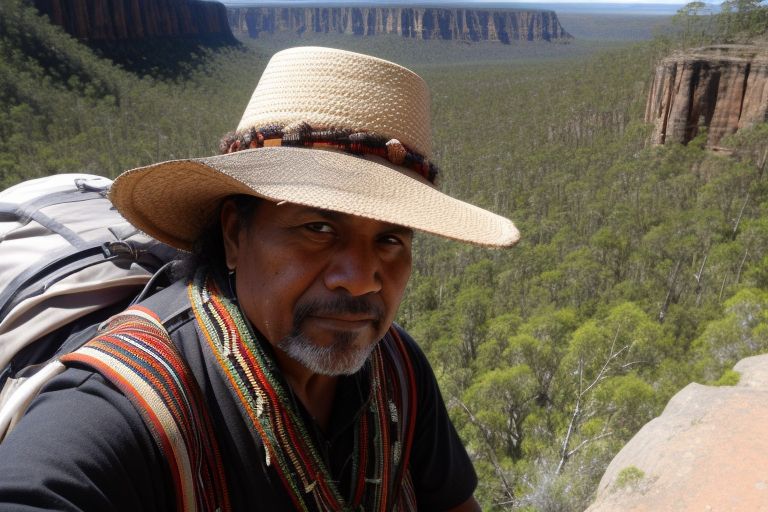
Journey of Discovery Aboriginal Trip Aboriginal Culture and the Outback is an immersive exploration into the rich tapestry of Aboriginal heritage and the breathtaking landscapes of the Australian Outback. This article guides readers through the profound significance of embarking on Aboriginal trips, highlighting the importance of cultural exchange, environmental awareness, and personal reflection. From preparing for the journey with practical tips to delving into the educational value of learning about Aboriginal cultures, each section offers valuable insights and guidance for travelers. Moreover, readers are introduced to a diverse array of destinations and activities, including visiting Aboriginal communities, participating in cultural ceremonies, and exploring sacred sites. Through engaging narratives and thoughtful reflections, this article inspires readers to embark on a transformative journey of discovery, fostering mutual understanding, respect, and appreciation for Aboriginal cultures and the natural world.
Table of Contents
Definition of Aboriginal Trip
An Aboriginal Trip refers to a journey or travel experience centered around exploring and engaging with Aboriginal cultures, traditions, and communities. It offers participants a unique opportunity to immerse themselves in the rich heritage and history of Indigenous peoples, particularly in regions such as Australia, Canada, New Zealand, and parts of Africa. The focus of such trips is to foster cultural exchange, deepen understanding, and promote appreciation for the diverse traditions and lifestyles of Aboriginal communities.
Importance of Aboriginal Cultural Experiences
Embarking on an Aboriginal Trip holds profound significance for individuals seeking to broaden their horizons and cultivate a deeper connection with the world’s Indigenous cultures. These experiences offer a gateway to understanding the intricate tapestry of human diversity, heritage, and wisdom passed down through generations. By engaging directly with Aboriginal communities, travelers have the opportunity to gain insights into alternative worldviews, sustainable practices, and the resilience of Indigenous peoples in the face of historical and contemporary challenges.
Participating in Aboriginal cultural experiences fosters empathy, respect, and cross-cultural appreciation. It provides a platform for meaningful dialogue and mutual learning, transcending geographical and societal barriers. Moreover, these encounters offer a chance to challenge preconceptions, confront stereotypes, and confront the legacies of colonialism and marginalization that continue to impact Indigenous communities worldwide.
Furthermore, Aboriginal cultural experiences contribute to the preservation and revitalization of traditional knowledge systems, languages, and practices. By supporting Indigenous-led initiatives and enterprises, travelers can play a role in promoting cultural sustainability and economic empowerment within Aboriginal communities. Additionally, these interactions create opportunities for Indigenous artists, artisans, and storytellers to share their talents and narratives with a global audience, fostering cultural pride and recognition.
In essence, the importance of Aboriginal cultural experiences lies in their capacity to inspire curiosity, foster mutual respect, and promote cultural diversity and inclusivity. Through meaningful engagement with Indigenous peoples and their heritage, travelers not only enrich their own lives but also contribute to the preservation and celebration of humanity’s collective heritage for generations to come.
Preparing for the Trip
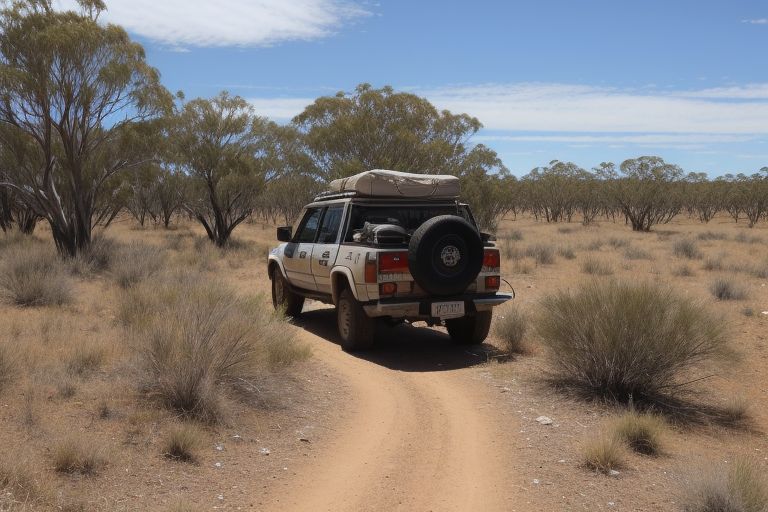
Preparing for the Trip” provides essential guidance and tips for individuals planning to embark on an Aboriginal Outback Tour, ensuring they are well-equipped to make the most of their journey. This section offers practical advice on what to pack, health and safety considerations, and cultural sensitivity guidelines to enhance the overall travel experience.
Readers are encouraged to pack appropriate clothing and gear for the Outback’s rugged terrain and variable weather conditions, including sturdy footwear, sun protection, insect repellent, and plenty of water. Additionally, the article emphasizes the importance of being mindful of environmental conservation and respecting cultural protocols when visiting Aboriginal lands.
Furthermore, readers are advised to prioritize their health and safety by obtaining necessary vaccinations, carrying essential medications, and being aware of potential hazards such as extreme temperatures, wildlife encounters, and remote locations. Travel insurance is recommended to provide coverage for unexpected emergencies or disruptions during the trip.
Researching Aboriginal Cultures and History
Before embarking on an Aboriginal Trip, it is essential to conduct thorough research into the cultures, histories, and traditions of the Indigenous peoples you will be encountering. This research serves multiple purposes, including gaining a deeper appreciation for the diversity of Aboriginal cultures, understanding the significance of key cultural practices and symbols, and recognizing the historical context in which contemporary Indigenous communities exist. Resources for research may include books, documentaries, online articles, and educational materials provided by Indigenous organizations or cultural centers.
Planning Logistics and Accommodations
Another crucial aspect of preparing for an Aboriginal Trip is to plan logistics and accommodations meticulously. This involves determining the best time to visit Aboriginal communities, arranging transportation to and within the region, and booking accommodations that respect Indigenous ownership and stewardship of land. Depending on the destination, travelers may have the option to stay in Indigenous-owned lodges, eco-resorts, or homestays, which offer opportunities for authentic cultural immersion and support local economies.
Understanding Cultural Sensitivities and Protocols
One of the most important aspects of preparing for an Aboriginal Trip is to familiarize oneself with the cultural sensitivities and protocols of the Indigenous communities you will be visiting. This includes learning about appropriate behavior, communication styles, and protocols for engaging with community members, elders, and cultural leaders. It is essential to approach interactions with humility, respect, and a willingness to listen and learn from Indigenous perspectives. Additionally, understanding the significance of cultural protocols such as greetings, gift-giving, and participation in ceremonies is key to fostering positive and meaningful relationships with Aboriginal hosts.
By investing time and effort in researching Aboriginal cultures and history, planning logistics and accommodations thoughtfully, and understanding cultural sensitivities and protocols, travelers can ensure that their Aboriginal Trip is not only enjoyable but also respectful, responsible, and culturally enriching. These preparations lay the foundation for meaningful cross-cultural exchange and contribute to the promotion of mutual understanding, appreciation, and solidarity between Indigenous and non-Indigenous peoples.
Destinations and Activities
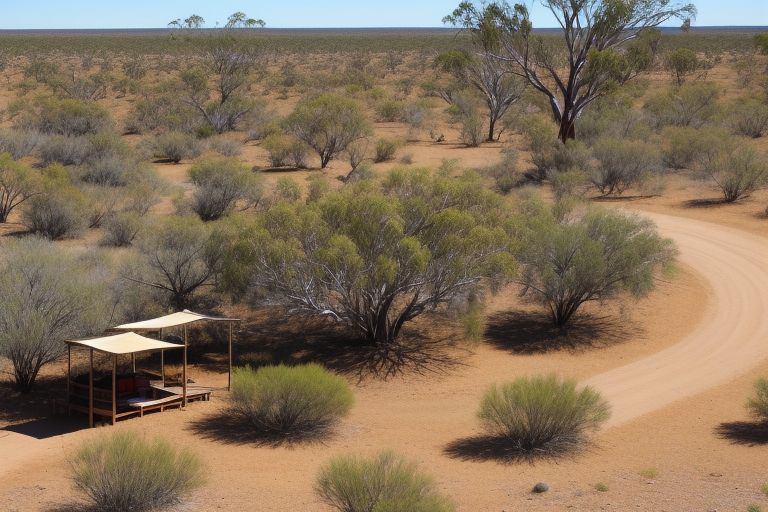
Destinations and Activities” offers an enticing overview of the diverse range of destinations and activities available to participants of Aboriginal Outback Tours. This section serves as a virtual travel guide, showcasing the captivating landscapes, cultural sites, and immersive experiences awaiting travelers in the Australian Outback.
Readers are introduced to a selection of must-visit destinations, including iconic landmarks such as Uluru (Ayers Rock), Kata Tjuta (The Olgas), Kings Canyon, and the Simpson Desert. Each destination is described in vivid detail, highlighting its natural beauty, cultural significance, and unique attractions. From the towering sandstone formations of Uluru to the ancient rock art galleries scattered throughout the Outback, readers are transported to a realm of awe-inspiring landscapes and cultural treasures.
Visiting Aboriginal Communities
Visiting Aboriginal communities is a central aspect of an Aboriginal Trip, providing an opportunity to connect directly with Indigenous peoples and gain insights into their way of life. These communities may be located in remote regions or urban areas, each offering unique perspectives on Aboriginal culture, traditions, and contemporary issues. Travelers can engage in cultural exchange through interactions with community members, participating in guided tours, and learning about traditional practices such as hunting, fishing, and storytelling.
Participating in Cultural Ceremonies and Traditions
Participating in cultural ceremonies and traditions is a profound way to experience the rich cultural heritage of Aboriginal peoples. These ceremonies, which may include dances, songs, rituals, and storytelling, serve as important expressions of identity, spirituality, and community cohesion. By respectfully observing or taking part in these ceremonies, travelers can gain a deeper understanding of Aboriginal cosmology, worldview, and the significance of ancestral connections to land and ancestors.
Exploring Sacred Sites and Landmarks
Exploring sacred sites and landmarks holds immense significance in an Aboriginal Trip, as these locations are often imbued with spiritual, historical, and cultural significance for Indigenous peoples. These sites may include natural landscapes such as mountains, rivers, and rock formations, as well as cultural sites such as ceremonial grounds, burial sites, and ancient rock art galleries. Through guided tours or self-guided exploration, travelers can learn about the stories, legends, and Dreamtime narratives associated with these sacred places, deepening their appreciation for Aboriginal spirituality and connection to country.
Engaging in Indigenous Art and Crafts Workshops
Engaging in Indigenous art and crafts workshops offers travelers the opportunity to learn traditional art forms and techniques directly from skilled artisans and craftspeople. These workshops may include activities such as painting, weaving, carving, and pottery, each reflecting unique cultural expressions and motifs. By participating in these hands-on experiences, travelers not only gain practical skills but also support Indigenous artists and artisans in preserving and transmitting their cultural heritage to future generations.
Overall, the diverse range of destinations and activities available on an Aboriginal Trip provides travelers with rich opportunities for cultural immersion, learning, and personal growth. Whether visiting Aboriginal communities, participating in cultural ceremonies, exploring sacred sites, or engaging in art workshops, each experience offers a window into the vibrant tapestry of Aboriginal cultures and traditions.
Learning and Education
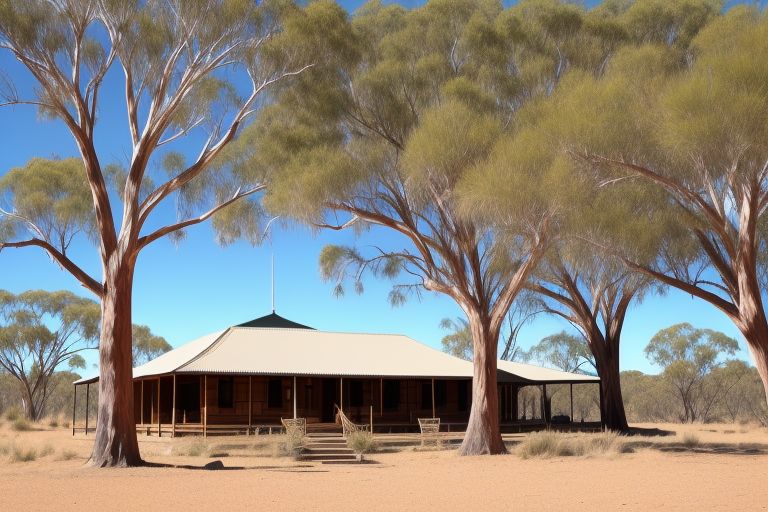
Learning and Education” delves into the educational value inherent in participating in Aboriginal Outback Tours, emphasizing the transformative learning experiences available to travelers. This section highlights how these tours serve as immersive classrooms, offering participants invaluable insights into Aboriginal culture, history, and traditions.
Through interactive experiences, guided tours, and meaningful interactions with Indigenous guides, participants gain firsthand knowledge of Aboriginal customs, traditional practices, and spiritual beliefs. From engaging in Dreamtime storytelling sessions to learning traditional skills such as spear-making and bush tucker foraging, travelers are provided with a holistic understanding of Australia’s Indigenous heritage.
Understanding the Significance of Dreamtime Stories
Central to Aboriginal cultures is the concept of Dreamtime, a spiritual framework that explains the origins of the universe, the natural world, and the relationships between people, land, and animals. Understanding the significance of Dreamtime stories is essential for appreciating Aboriginal cosmology, worldview, and cultural practices. These stories convey important moral, ethical, and ecological teachings, serving as a repository of ancestral knowledge passed down through generations. By learning about Dreamtime stories, travelers can gain insights into Aboriginal spirituality, connections to land, and the enduring relevance of traditional wisdom in contemporary Aboriginal life.
Learning About Traditional Hunting and Gathering Techniques
Traditional hunting and gathering techniques are integral components of Aboriginal cultures, reflecting deep ecological knowledge, resourcefulness, and sustainable practices developed over thousands of years. By learning about these techniques, travelers can gain a deeper appreciation for Aboriginal relationships with the natural world and the importance of biodiversity, conservation, and land stewardship. Additionally, understanding traditional hunting and gathering practices provides insights into Aboriginal subsistence strategies, social organization, and the resilience of Indigenous communities in diverse environments.
Studying the Impact of Colonization on Aboriginal Peoples
The impact of colonization on Aboriginal peoples is a complex and multifaceted aspect of Aboriginal history and contemporary life. Studying this impact involves examining the historical processes of colonization, dispossession, forced assimilation, and cultural genocide perpetrated against Indigenous peoples by colonial powers. It also involves understanding the ongoing legacies of colonization, including intergenerational trauma, socio-economic disparities, and systemic racism faced by Aboriginal communities today. By studying the impact of colonization, travelers can gain a deeper understanding of the historical injustices faced by Aboriginal peoples and the ongoing struggles for self-determination, land rights, and cultural revitalization.
In summary, learning and education play a crucial role in an Aboriginal Trip, providing opportunities for travelers to deepen their understanding of Aboriginal cultures, histories, and contemporary realities. By engaging with Dreamtime stories, traditional hunting and gathering techniques, and the impact of colonization, travelers can gain insights into the rich tapestry of Aboriginal knowledge, resilience, and cultural survival.
Environmental and Ecological Awareness
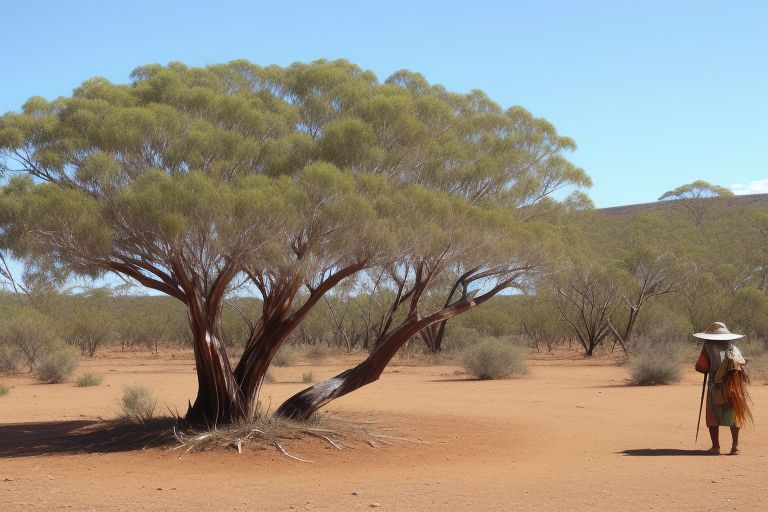
Environmental and Ecological Awareness explores the profound connection between Aboriginal culture and the natural environment of the Outback, highlighting the importance of fostering environmental stewardship and ecological consciousness among tour participants.
This section emphasizes how Aboriginal Outback Tours serve as platforms for promoting environmental awareness and conservation efforts. Through guided excursions led by knowledgeable Indigenous guides, participants gain insights into sustainable land management practices, traditional ecological knowledge, and the interconnectedness between Aboriginal culture and the natural world.
Exploring the Connection Between Aboriginal Culture and Nature
Aboriginal cultures have deep-rooted connections to the natural world, viewing the environment as a sacred entity intertwined with spiritual, cultural, and physical well-being. Exploring this connection involves understanding Aboriginal perspectives on the land as a living entity, the interconnectedness of all living beings, and the importance of sustainable coexistence with nature. By immersing themselves in Aboriginal cultural practices, travelers can gain insights into traditional ecological knowledge, seasonal cycles, and the holistic relationship between humans and the environment.
Learning About Traditional Land Management Practices
Traditional land management practices employed by Aboriginal peoples offer valuable lessons in ecological sustainability, resilience, and adaptive management. These practices, which include controlled burning, rotational grazing, and selective harvesting, reflect a profound understanding of local ecosystems, biodiversity, and the long-term health of the land. By learning about these practices, travelers can appreciate the effectiveness of Indigenous stewardship in maintaining ecosystem balance, preventing wildfires, and promoting habitat diversity. Moreover, supporting the revival of traditional land management practices contributes to environmental conservation efforts and strengthens Indigenous sovereignty over ancestral territories.
Discussing Contemporary Environmental Challenges Facing Aboriginal Communities
Contemporary environmental challenges facing Aboriginal communities, such as climate change, habitat destruction, and resource extraction, pose significant threats to Indigenous lands, cultures, and livelihoods. Engaging in discussions about these challenges allows travelers to gain insights into the disproportionate impacts of environmental degradation on Aboriginal peoples, who often rely on the land for sustenance, cultural practices, and spiritual well-being. By amplifying Indigenous voices, advocating for environmental justice, and supporting Indigenous-led conservation initiatives, travelers can contribute to collective efforts to address these challenges and uphold Indigenous rights to self-determination, land stewardship, and environmental sustainability.
In conclusion, fostering environmental and ecological awareness is essential for an Aboriginal Trip, as it enables travelers to appreciate the profound connections between Aboriginal culture and nature, learn from traditional land management practices, and confront contemporary environmental challenges facing Aboriginal communities. By embracing Indigenous perspectives on environmental stewardship and supporting efforts to protect Indigenous lands and resources, travelers can contribute to the preservation of biodiversity, cultural heritage, and ecological balance for future generations.
Reflection and Impact
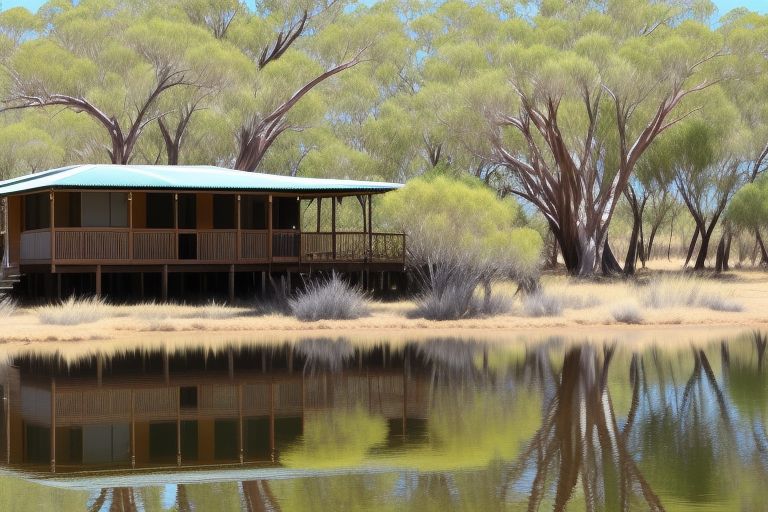
Reflection and Impact delves into the transformative experiences and lasting impressions that participants of Aboriginal Outback Tours carry with them long after their journey through the rugged landscapes of the Outback has ended.
This section invites readers to reflect on the profound impact of immersing oneself in the rich cultural heritage of Australia’s Indigenous peoples and the breathtaking beauty of the Outback. Through guided excursions, cultural workshops, and interactions with Aboriginal guides and communities, participants gain not only a deeper understanding of Aboriginal culture and history but also a newfound appreciation for the interconnectedness of all living beings and the importance of preserving the natural world.
Personal Reflections on the Experience
After participating in an Aboriginal Trip, travelers often undergo profound personal reflections on their experiences. These reflections may include insights into newfound cultural understandings, spiritual connections with the land, and emotional responses to encounters with Indigenous communities. By reflecting on their journey, travelers can deepen their appreciation for Aboriginal cultures, gain perspective on their own cultural identity, and develop empathy and respect for diverse worldviews and ways of life.
Recognizing the Importance of Preserving Aboriginal Cultures
One of the key outcomes of an Aboriginal Trip is the recognition of the importance of preserving Aboriginal cultures for future generations. Through firsthand experiences with Aboriginal traditions, languages, and customs, travelers come to understand the intrinsic value of cultural diversity and the richness it brings to humanity’s collective heritage. Recognizing the threats posed by globalization, assimilation, and cultural erosion, travelers are inspired to advocate for the preservation and revitalization of Aboriginal cultures, languages, and knowledge systems as vital components of global cultural diversity and resilience.
Committing to Supporting Indigenous Communities and Initiatives
Upon returning from an Aboriginal Trip, travelers often feel a deep sense of responsibility and commitment to supporting Indigenous communities and initiatives. This may involve contributing to local development projects, supporting Indigenous-owned businesses, advocating for Indigenous rights and land stewardship, and promoting cross-cultural understanding and solidarity. By actively engaging in efforts to support Indigenous self-determination, economic empowerment, and cultural revitalization, travelers can contribute to the long-term well-being and sustainability of Aboriginal communities and foster positive social change on local, national, and global levels.
In summary, the process of reflection and impact following an Aboriginal Trip encompasses personal growth, cultural awareness, and social responsibility. By reflecting on their experiences, recognizing the importance of preserving Aboriginal cultures, and committing to supporting Indigenous communities and initiatives, travelers can harness the transformative power of cultural exchange to create positive change and promote justice, equity, and respect for all peoples.
| Section | Description |
| Introduction | An overview of the article’s focus on exploring Aboriginal culture and the Australian Outback, highlighting the importance of cultural exchange and personal growth. |
| Definition of Aboriginal Trip | Explanation of what an Aboriginal Trip entails, focusing on exploring and engaging with Aboriginal cultures, traditions, and communities. |
| Importance of Aboriginal Experiences | Emphasizes the significance of embarking on Aboriginal trips for cultural exchange, understanding diversity, and supporting Indigenous communities. |
| Preparing for the Trip | Provides practical guidance and tips for travelers planning to embark on an Aboriginal Outback Tour, covering aspects like packing, health, safety, and cultural sensitivity. |
| Destinations and Activities | Highlights must-visit destinations and activities available on Aboriginal trips, including visiting communities, participating in ceremonies, and exploring sacred sites. |
| Learning and Education | Explores the educational value of participating in Aboriginal Outback Tours, focusing on learning about Aboriginal cultures, histories, and traditional practices. |
| Environmental Awareness | Discusses the connection between Aboriginal culture and the environment, emphasizing the importance of environmental stewardship and ecological consciousness. |
| Reflection and Impact | Explores the transformative experiences and lasting impressions of participating in Aboriginal Outback Tours, including personal reflections and commitments to support Indigenous communities. |
Journey of Discovery: Exploring Aboriginal Culture and the Outback encapsulates the profound significance of embarking on Aboriginal trips, inviting readers to delve into the rich tapestry of Aboriginal heritage and the breathtaking landscapes of the Australian Outback. Through cultural exchange, environmental awareness, and personal reflection, travelers are offered transformative experiences that deepen their understanding, respect, and appreciation for Aboriginal cultures and the natural world.
FAQ:
Q: How can I prepare for an Aboriginal trip? A: Prioritize researching Aboriginal cultures and history, plan logistics and accommodations thoughtfully, and familiarize yourself with cultural sensitivities and protocols to ensure a respectful and enriching experience.
Q: What destinations and activities can I expect on an Aboriginal trip? A: You can visit Aboriginal communities, participate in cultural ceremonies, explore sacred sites, and engage in Indigenous art and crafts workshops, each offering opportunities for cultural immersion and personal growth.
Q: What educational value does an Aboriginal trip offer? A: Participants gain firsthand knowledge of Aboriginal customs, traditional practices, and spiritual beliefs, deepening their understanding of Aboriginal culture, history, and contemporary realities.
Q: How can I contribute to environmental conservation during an Aboriginal trip? A: By learning about traditional land management practices, supporting Indigenous-led conservation initiatives, and engaging in discussions about contemporary environmental challenges facing Aboriginal communities, travelers can foster environmental stewardship and ecological consciousness.
Q: What lasting impact can an Aboriginal trip have on participants? A: Participants often undergo profound personal reflections, recognize the importance of preserving Aboriginal cultures, and commit to supporting Indigenous communities and initiatives, embodying the transformative power of cultural exchange and collective action.

